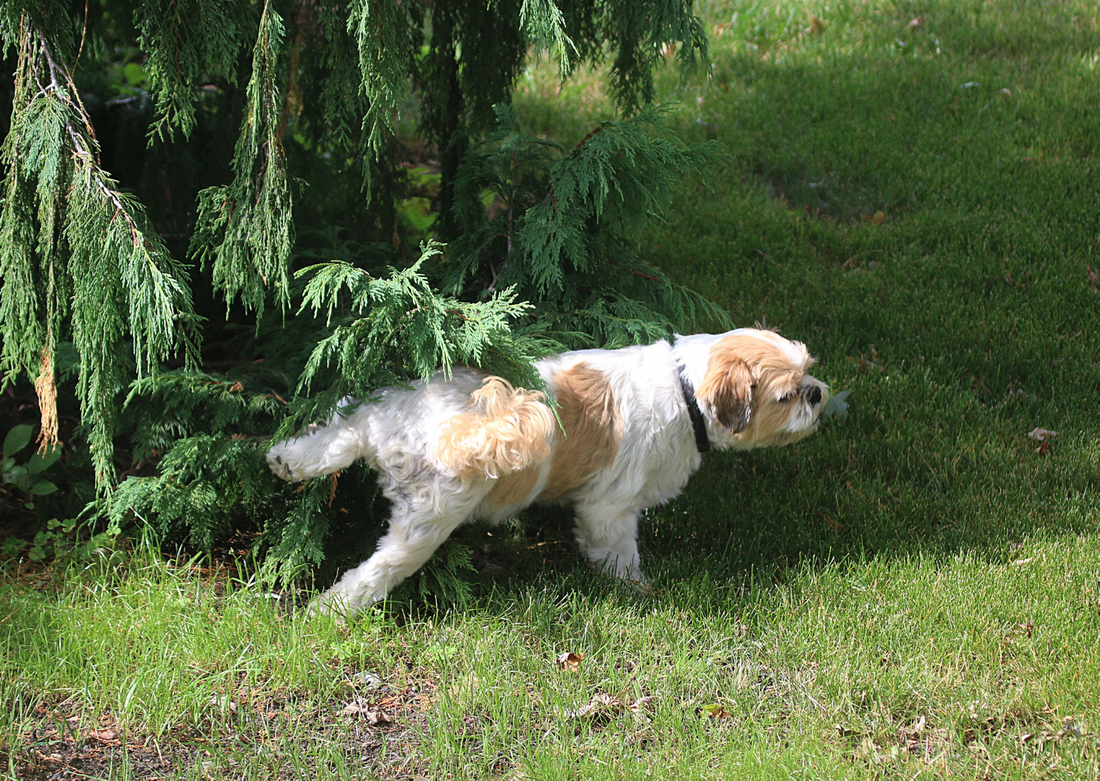A few weeks ago, I noticed our female lab Betty was taking longer to wee. She would squat for longer period and we initially thought: “maybe we need to increase her potty breaks and give her more chances to go outside”.
We didn’t think much of it until we spotted bright blood in her urine and then, it hit us: Betty had a UTI. This was the first time it happened in the 8 years having her and prompted us to quickly book an appointment at the vet.
You’ve probably dealt with UTIs yourself and know they are extremely uncomfortable. Unfortunately, our dogs cannot let us know they have an issue which makes it more complicated.
So how do you recognize urinary tract infection in dogs? Does it happen to every dog? Is it dangerous? In this blog post, we will look at how to spot UTIs in dogs, how to prevent and treat them.
What is a canine UTI?
A urinary tract infection or cystitis, is basically a build-up of bacteria in the urethra (that’s the small tube that transmits urine from the bladder to the exterior of the body during urination.) Unfortunately, once these bacteria make their way into your dog’s urinary system, they multiply quickly, creating a UTI.
Bacterial urinary tract infections are the most common, especially in female dogs. But other health conditions such as kidney disease, kidney stones, diabetes, stress and trauma can also cause a UTI.
Common symptoms of canine UTI
So how do you know if your dog has a UTI? Well, there are some common symptoms, starting with a change in behaviour and “wee” routine and including:
- Accident in the house
- Longer urination
- Urgency to urinate but only managing to do a few drops
- Cloudy urine
- Blood in urine
- Whimpering while peeing
- Licking the genitals
- Lethargy
- Change in appetite.
- Increase thirst.
- Fever

Is my dog at risk of UTIs?
As mentioned, female dogs are more susceptible to develop a urinary tract infection because their urethra is shorter. They also squat lower to the ground and can introduce dirt and bacteria that way.
The same goes for puppies who are also lower to the ground. Their immune system is still developing which makes it harder for them to fight off the spread of bacteria.
Younger and older dogs might not be drinking as much water as they should causing urine and toxin retention which can cause UTIs as well.
How to treat a UTI in dogs?
If you suspect your dog has a UTI, it is important to take them to the vet within 24 hours.
Do not try and treat the issue yourself like you would your own UTI, by drinking cranberry juice.
The symptoms of a UTI are similar to those of bladder and kidney stones so it’s important your vet diagnose your dog quickly. If left untreated, a urinary tract infection can lead to other health problems.
While waiting for your vet appointment, make sure to offer plenty of water to your dog.
It is best if you can collect a sample of urine to take to your vet, no more than an hour prior, and keep it at room temperature ( the fridge can create crystals).
Your vet will do a urinalysis, physical examination and might suggest a complete blood count (blood test).
Once your vet has identified which bacteria is causing the infection, they will prescribe antibiotics.
If your vet suspects a more serious condition such as kidney disease, bladder disease, bladder and kidney stones, prostate disease, and cancer, they will do further tests.
How do I prevent my dog from getting UTIs?
The best way to prevent urinary tract infection is to offer your dog access to plenty of clean, fresh water.
Drinking water helps move the toxins through the body and frequent urination will flush out the urethra, removing dirt and bacteria.
Make sure your pup gets frequent bathroom breaks and stays well-groomed and bathed.
As pet owners, we have become used to our dog’s weeing and pooping routine (what a special gift!). The good news is, you will be able to quickly notice any changes and avoid a simple UTI turning into a complicated one. Betty recovered well! Within 2 days, her urination went back to normal and she was on antibiotics for 7 days.
Want to be the first to get your paws onto the hottest topics? Subscribe to our newsletter!
-------------------------------------------------------------------------------------------------
The Doggy Grub blog is dedicated to helping dogs and their owners achieve happier, healthier lives, changing the way we feed our dogs one bowl at a time! If you would like to know more about our fresh food head to Doggy Grub










